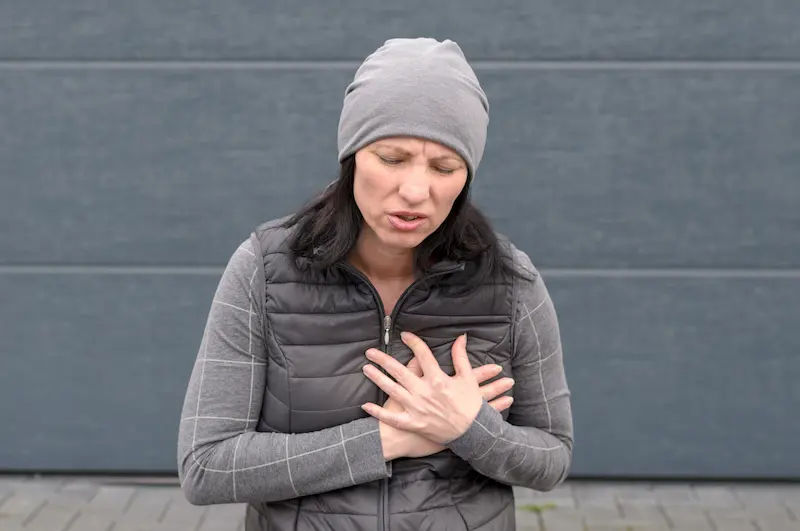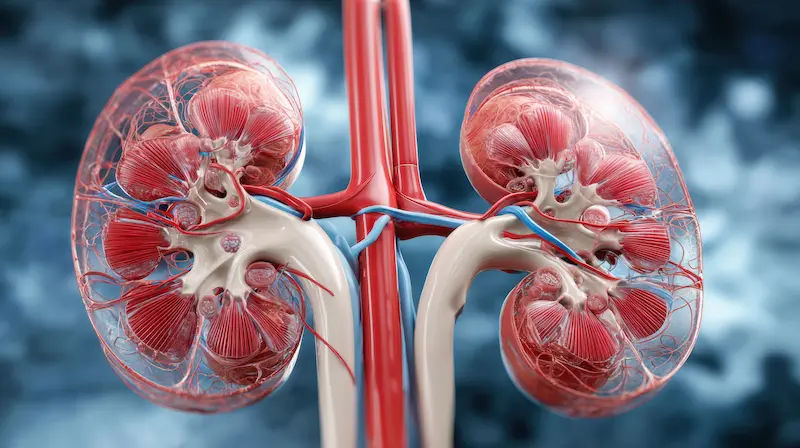Guide to Internal Medicine
Know about the internal medicine, common illnesses treated by them, what it is, diagnosis, symptoms, lifestle changes and treatment options.

Written by Dr. Mohammed Kamran
Reviewed by Dr. J T Hema Pratima MBBS, Fellowship in Diabetes Mellitus
Last updated on 13th Jan, 2026

Introduction
If you’re an adult looking for a trusted partner to help prevent illness, diagnose problems, and manage long-term conditions, internal medicine is built for you. Internists (doctors of internal medicine) specialise in adult health across the full spectrum—from everyday aches and routine screenings to complex chronic diseases that need careful, coordinated care. In this guide, you’ll learn what internal medicine is, how it differs from family medicine, the conditions internists treat, and how to get the most from each visit. We’ll map out preventive screenings by age, explain common tests, and share a practical playbook for managing conditions like high blood pressure, diabetes, and high cholesterol. You’ll also get tips for medication safety, lifestyle changes that actually stick, and how internal medicine teams collaborate with specialists. Whether you’re choosing your first internist or optimising care with your current one, this guide will help you take confident next steps in your health.
Consult a Top General Practitioner for Personalised Advice
What Is Internal Medicine?
A clear definition
Internal medicine is the medical speciality focused on the prevention, diagnosis, and treatment of illnesses in adults. Internists are trained to manage complex, multi-system conditions and often serve as primary care physicians for adults, coordinating care across subspecialists when needed [1]. Unlike “interns” (first-year residents), internists have completed residency training in internal medicine and are board-eligible or board-certified.
Training and subspecialties
Internists complete a 3-year residency after medical school, followed by optional fellowships in areas like cardiology, gastroenterology, endocrinology, pulmonology, infectious disease, rheumatology, and more. This training equips them to handle both common problems and complex diagnoses that span multiple body systems.
Internist vs family medicine vs hospitalists
- Internal medicine vs family medicine: Both can serve as primary care. Internal medicine focuses on adults; family
medicine covers all ages, including children, and often includes women’s health and basic procedures. Choosing
between them depends on your preference and health needs; adults with multiple chronic conditions often choose
internal medicine for its deep focus on adult complexity. - Hospitalists: Many internists practice in hospitals as “hospitalists,” managing inpatient care and transitions from the hospital back to primary care [1].
What Internists Treat: Common Adult Conditions
Cardiometabolic and endocrine
Hypertension, high cholesterol, diabetes, metabolic syndrome, thyroid disorders. Internists create tailored care plans
that may blend lifestyle coaching, medications, and referrals for diabetes education. Chronic disease management is the
core of internal medicine because 6 in 10 U.S. adults live with at least one chronic disease, and 4 in 10 have two or
more [3].
Respiratory and infectious
Asthma, COPD, pneumonia, influenza, COVID-19, and travel-related infections. Internists oversee vaccinations,
inhaler technique, and infection risk reduction.
Gastrointestinal and liver
Acid reflux, IBS, ulcers, hepatitis, fatty liver. Internists often order tests like H. pylori, liver function tests, and
collaborate with gastroenterology if endoscopy is needed.
Musculoskeletal and rheumatologic
Osteoarthritis, back pain, gout, and rheumatoid arthritis. Internists handle initial evaluation, pain plans, and coordinate
imaging or speciality care.
Mental health and women’s/men’s health
Depression, anxiety, sleep disorders, menopause and osteoporosis evaluation, sexual health, and erectile dysfunction.
Internal medicine emphasises whole-person care, recognizing the overlap between physical and mental health.
When to seek urgent care or emergency care?
Call emergency services immediately for chest pain, difficulty breathing, signs of stroke (FAST: face drooping, arm
weakness, speech difficulty), severe allergic reactions, heavy bleeding, or sudden severe headaches. For urgent but non-
emergency issues (e.g., fever with cough, UTIs), your internist can often see you quickly or advise virtually. If
symptoms persist beyond two weeks, consult a doctor online with Apollo24|7 for further evaluation.
Adult immunisations (examples)
Influenza annually; COVID-19 per current guidance; Tdap every 10 years; shingles (Shingrix) at 50+; pneumococcal
vaccines at 65+ or earlier for certain conditions [5]. Your internist personalises timing based on risk and local recommendations.
Screening snapshots by life stage (examples, discuss with your doctor)
- Ages 18–39: Blood pressure check at least annually, BMI and counselling, depression screening, STI screening if at risk,
cervical cancer screening (for those eligible). Lab screening for diabetes and cholesterol based on risks [6]. - Ages 40–64: Add diabetes screening (HbA1c or fasting glucose) and lipid panels more regularly; colon cancer screening
starting at 45; breast cancer screening schedules individualised; osteoporosis risk assessments. - Ages 65+: Bone density test for women 65+ and at-risk men; annual fall risk and cognitive screens; continued cancer
screening per individualised timelines; vaccinations updated.
Access made easier
Your internist can bundle screenings to minimise visits. If blood tests are needed, Apollo24|7 offers convenient home
collection for tests like vitamin D, lipid panel, and HbA1c.
Chronic Disease Management: A Playbook
Hypertension (high blood pressure)
- Targets: Often <130/80 mmHg for many adults, individualised by age and comorbidities [5].
- Tools: Home blood pressure monitoring (validated cuff), sodium reduction, DASH-style eating, movement snacks,
stress management, and medications when needed. - Example case: Patients adopting a DASH plan and walking 150 minutes per week can reduce systolic blood pressure by
5–11 mmHg, sometimes matching a single medication’s effect.
Type 2 diabetes
- Monitoring: HbA1c every 3–6 months until stable; daily glucose monitoring as advised. Weight reduction of 5–10% can
significantly improve HbA1c and cardiometabolic risk. - Medications and outcomes: Metformin remains first-line for many; GLP-1 receptor agonists and SGLT2 inhibitors offer
weight, cardiovascular, and kidney benefits in appropriate patients according to leading guidelines. - Practical tip: Pair meals with movement (e.g., a 10-minute walk after eating) to reduce post-meal glucose spikes.
Apollo24|7 offers home collection for HbA1c to keep monitoring convenient.
High cholesterol
- Lifestyle: Fibre-rich diet, Mediterranean pattern, resistance training twice weekly.
- Medications: Statins reduce major cardiovascular events and mortality in at-risk adults [5]. Non-statin options are
available when needed.
The 5+1 model for sustained change (unique insight)
- 5: Sleep, stress, steps, strength, and sustenance (nutrition).
- +1: Support—schedule brief check-ins (virtual or in-person). Internal medicine teams excel when small, regular
touchpoints keep your plan on track.
Diagnostics and Tests in Internal Medicine
The diagnostic tests include:
Common labs and what they show
- Complete blood count (CBC), comprehensive metabolic panel (CMP), lipid panel, thyroid tests, HbA1c, vitamin D,
iron studies, and urine tests. - How internists interpret results: beyond “normal” ranges, they consider your baseline, trends, and risk profile.
Imaging and procedures
Chest X-rays, ultrasound, echocardiograms, ECGs, ankle-brachial index for circulation, bone density scans. Internists
decide when imaging’s benefits outweigh radiation exposure or costs.
Making testing easier
- Pre-test preparation: fasting guidance, medication timing (e.g., hold biotin before thyroid tests), hydration.
- Receiving results: Many clinics offer portals. Ask your internist to annotate results with plain-language notes and next
steps. - Convenience: For routine labs, Apollo24|7 home collection can save time and support consistent testing for chronic
disease monitoring.
Medicines, Safety, and Deprescribing
The medications and safety while deprescribing includes:
The medication reconciliation checklist
- Bring an updated list (or the actual bottles) of all prescriptions, over-the-counter drugs, and supplements.
- Share side effects and adherence barriers (e.g., cost, timing, swallowing issues).
Deprescribing and polypharmacy
- Internists regularly reassess whether each drug still provides more benefit than risk—especially in older adults or those
with multiple conditions. - Examples: Stopping duplicate meds, simplifying dosing, or switching to combination pills can improve adherence and
reduce side effects.
Cost-savvy pharmacotherapy
Ask about generics, therapeutic alternatives, and pill-splitting where appropriate. Internal medicine often integrates
pharmacists or uses e-consults to optimise regimens.
Lifestyle Medicine for Long-Term Health
The lifestyle medication includes:
Food patterns that work
Mediterranean and DASH dietary patterns are linked to lower cardiovascular risk and improved blood pressure and
lipids. Focus on plants, lean proteins, legumes, nuts, and olive oil; limit ultra-processed foods.
Movement you’ll stick with
Aim for 150+ minutes of moderate activity weekly plus 2 days of resistance training. If you sit a lot, try “movement
snacks”: 2–3 minutes of walking or mobility every 30–60 minutes.
Sleep, stress, and mental well-being
Adults generally need 7–9 hours of consistent sleep. Use wind-down routines and keep devices out of the bedroom.
Consider mindfulness or brief therapy for stress, depression, and anxiety screening are part of internal medicine care.
Conclusion
Internal medicine is your all-in-one partner for adult health, designed to keep you well today and prevent bigger
problems tomorrow. By understanding what internists do—and how they coordinate prevention, diagnosis, treatment, and follow-up—you can get the most out of each visit. Start with the basics: choose a board-certified internist, bring an up-to-date medication and history list, and ask for a personalised Screening Roadmap. And when new symptoms appear, don’t wait—early evaluation often leads to easier solutions. Your health journey works best as a team sport, and internal medicine is built to lead that team with you at the centre. If you need a timely evaluation, consult a doctor online with Apollo24|7, and consider their home collection for routine tests like vitamin D, HbA1c, and lipid panels. Take your next step today: schedule your annual preventive visit, and set three achievable goals for the year ahead.
Consult a Top General Practitioner for Personalised Advice
Consult a Top General Practitioner for Personalised Advice

Dr. Suvadeep Sen
Critical Care Specialist
12 Years • MBBS, MD, FNB (CRITICAL CARE MEDICINE), EDIC
Mumbai
Apollo Hospitals CBD Belapur, Mumbai

Dr Suseela
General Physician
5 Years • MBBS
Bengaluru
Apollo Medical Center, Marathahalli, Bengaluru

Dr. Vasanthasree Nair
General Practitioner
15 Years • MBBS
Angamaly
Apollo 24|7 Clinic - Kerala, Angamaly
(525+ Patients)

Dr. Mohammed Kamran
General Practitioner
5 Years • MBBS, FIDM
Nashik
Apollo 24|7 Clinic - Maharashtra, Nashik

Dr. Rajib Ghose
General Physician/ Internal Medicine Specialist
25 Years • MBBS
East Midnapore
VIVEKANANDA SEBA SADAN, East Midnapore
Consult a Top General Practitioner for Personalised Advice

Dr. Suvadeep Sen
Critical Care Specialist
12 Years • MBBS, MD, FNB (CRITICAL CARE MEDICINE), EDIC
Mumbai
Apollo Hospitals CBD Belapur, Mumbai

Dr Suseela
General Physician
5 Years • MBBS
Bengaluru
Apollo Medical Center, Marathahalli, Bengaluru

Dr. Vasanthasree Nair
General Practitioner
15 Years • MBBS
Angamaly
Apollo 24|7 Clinic - Kerala, Angamaly
(525+ Patients)

Dr. Mohammed Kamran
General Practitioner
5 Years • MBBS, FIDM
Nashik
Apollo 24|7 Clinic - Maharashtra, Nashik

Dr. Rajib Ghose
General Physician/ Internal Medicine Specialist
25 Years • MBBS
East Midnapore
VIVEKANANDA SEBA SADAN, East Midnapore
More articles from General Medical Consultation
Frequently Asked Questions
1) What does an internist do?
An internist is a doctor specialising in adult health who provides primary care, preventive screenings, diagnoses illnesses, manages chronic disease, and coordinates care with specialists. They practice evidence-based internal medicine to personalise your care plan.
2) Internal medicine vs family medicine—how do I choose?
Internal medicine focuses on adults and complex conditions; family medicine covers all ages, often including paediatrics and women’s health procedures. Either can be your primary care doctor; adults with multiple chronic illnesses often prefer internal medicine.
3) What preventive screenings do adults need?
Typical screenings include blood pressure, cholesterol, diabetes checks, and age-appropriate cancer screening, plus vaccinations like flu, Tdap, and shingles. Your internist customizes this based on your risk profile and guidelines such as USPSTF.
4) How often should I see an internal medicine doctor?
At least annually for preventive care; more often if you’re starting or adjusting treatment, have uncontrolled chronic conditions, or develop new symptoms. If symptoms persist beyond two weeks, consult a doctor online with Apollo24|7 for further evaluation.
5) Can I do lab tests from home?
Yes. Many routine internal medicine tests like HbA1c, lipid panel, and vitamin D can be arranged via home collection services. Apollo24|7 offers convenient home collection for common labs to support regular monitoring.




